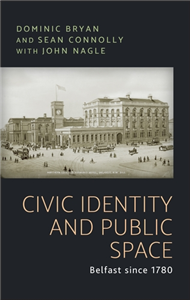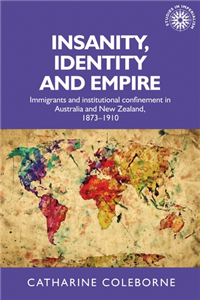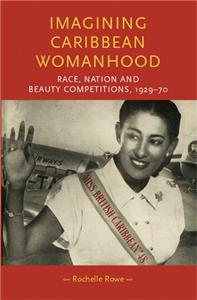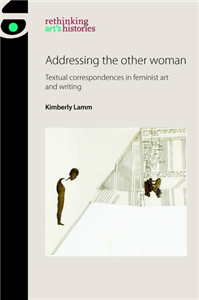Your Search Results
-
AITBS Publishers India
We are one of the leading publishers in India dealing in more than 400 titles. We are well reputed for publishing quality books mainly in Medical, Nursing, Pharmacy, Dentistry, Dictionaries, Management, Economics, Mathematics, Engineering and English Literature. We have published many good books authored by learned and eminent Indian authors. We sell and purchase reprint rights. Our aim is to publish good books, useful for students, colleges, professional institutes and public libraries.
View Rights Portal
-
Promoted ContentHumanities & Social SciencesOctober 2023
Towards a just Europe
A theory of distributive justice for the European Union
by João Labareda
This highly original book constitutes one of the first attempts to examine the problem of distributive justice in the European Union in a systematic manner. João Labareda argues that the set of shared political institutions at EU level, including the European Parliament and the Court of Justice of the EU, generate democratic duties of redistribution among EU citizens. Furthermore, the economic structure of the EU, comprising a common market, a common currency and a free-movement area, triggers duties of reciprocity among member states. The responsibilities to fulfil these duties, Labareda argues, should be shared by the local, national and supranational levels of government. Not only should the EU act as a safety net to the national welfare systems, applying the principle of subsidiarity, but common market and Eurozone regulations should balance their efficiency targets with fair cooperation terms. The concrete policy proposals presented in this book include a threshold of basic goods for all EU citizens, an EU labour code, a minimum EU corporate tax rate and an EU fund for competitiveness. Labarada argues that his proposals match the political culture of the member states, are economically feasible, can be translated into functioning institutions and policies and are consistent with the limited degree of social solidarity in Europe. This book is a major contribution to the understanding of what a just Europe would look like and what it might take to get us there. This book is relevant to United Nations Sustainable Development Goal 10, Reduced inequalities
-
Promoted ContentHumanities & Social SciencesMarch 2024
How to be multiple
The philosophy of twins
by Helena de Bres, Julia de Bres
In How to be multiple, Helena de Bres - a twin herself - argues that twinhood is a unique lens for examining our place in the world and how we relate to other people. The way we think about twins offers remarkable insights into some of the deepest questions of our existence, from what is a person? to how should we treat one another? Deftly weaving together literary and cultural history, philosophical enquiry and personal experience, de Bres examines such thorny issues as binary thinking, objectification, romantic love and friendship, revealing the limits of our individualistic perspectives. In this illuminating, entertaining book, wittily illustrated by her twin sister, de Bres ultimately suggests that to consider twinhood is to imagine the possibility of a more interconnected, capacious human future.
-
 Trusted Partner
Humanities & Social SciencesJanuary 2021
Trusted Partner
Humanities & Social SciencesJanuary 2021Towards a just Europe
by João Labareda, Paul Tobin, Dimitris Papadimitriou, Kathryn Simpson
-
 Trusted Partner
Trusted Partner
-
 Trusted Partner
September 2022
Trusted Partner
September 2022Identity or Not?
by Jean-Pierre Wils (ed.)
Questions of identity trigger controversial and highly emotional discussions in the political and social debate. The positions range from radically emancipatory perspectives to authoritarian and restorative efforts on the far right wing of politics. Liberal democracies are now opening up – slowly – as identity- and gender-sensitive forums. Opposite them are the 'new ethics' of illiberal democracies and totalitarian states that are aimed at ethnic homogeneity and gender uniformity. But that's not to say that there is unity in the liberal settings on the necessary degree of identity politics. Both language and gender politics are deeply controversial. Do we need an 'identity' and, if so, which one or how many? Can the identity debate be extended by means of other concepts?
-
 Trusted Partner
Humanities & Social SciencesMarch 2022
Trusted Partner
Humanities & Social SciencesMarch 2022Civic identity and public space
Belfast since 1780
by Dominic Bryan, Sean J. Connolly, John Nagle
Civic identity and public space, focussing on Belfast, and bringing together the work of a historian and two social scientists, offers a new perspective on the sometimes lethal conflicts over parades, flags and other issues that continue to disrupt political life in Northern Ireland. It examines the emergence during the nineteenth century of the concept of public space and the development of new strategies for its regulation, the establishment, the new conditions created by the emergence in 1920 of a Northern Ireland state, of a near monopoly of public space enjoyed by Protestants and unionists, and the break down of that monopoly in more recent decades. Today policy makers and politicians struggle to devise a strategy for the management of public space in a divided city, while endeavouring to promote a new sense of civic identity that will transcend long-standing sectarian and political divisions.
-
 Trusted Partner
Humanities & Social SciencesJune 2021
Trusted Partner
Humanities & Social SciencesJune 2021Insanity, identity and empire
Immigrants and institutional confinement in Australia and New Zealand, 1873–1910
by Catharine Coleborne
Insanity, identity and empire examines the formation of colonial social identities inside the institutions for the insane in Australia and New Zealand. Taking a large sample of patient records, it pays particular attention to gender, ethnicity and class as categories of analysis, reminding us of the varied journeys of immigrants to the colonies and of how and where they stopped, for different reasons, inside the social institutions of the period. It is about their stories of mobility, how these were told and produced inside institutions for the insane, and how, in the telling, colonial identities were asserted and formed. Having engaged with the structural imperatives of empire and with the varied imperial meanings of gender, sexuality and medicine, historians have considered the movements of travellers, migrants, military bodies and medical personnel, and 'transnational lives'. This book examines an empire-wide discourse of 'madness' as part of this inquiry.
-
 Trusted Partner
MedicineApril 2021
Trusted Partner
MedicineApril 2021Leprosy and identity in the Middle Ages
From England to the Mediterranean
by Elma Brenner, François-Olivier Touati
For the first time, this volume explores the identities of leprosy sufferers and other people affected by the disease in medieval Europe. The chapters, including contributions by leading voices such as Luke Demaitre, Carole Rawcliffe and Charlotte Roberts, challenge the view that people with leprosy were uniformly excluded and stigmatised. Instead, they reveal the complexity of responses to this disease and the fine line between segregation and integration. Ranging across disciplines, from history to bioarchaeology, Leprosy and identity in the Middle Ages encompasses post-medieval perspectives as well as the attitudes and responses of contemporaries. Subjects include hospital care, diet, sanctity, miraculous healing, diagnosis, iconography and public health regulation. This richly illustrated collection presents previously unpublished archival and material sources from England to the Mediterranean.
-
 Trusted Partner
Literature & Literary StudiesNovember 2018
Trusted Partner
Literature & Literary StudiesNovember 2018Writing and constructing the self in Great Britain in the long eighteenth century
by John Baker, Allan Ingram, Marion Leclair, Anne Dunan-Page
-
 Trusted Partner
Humanities & Social SciencesSeptember 2019
Trusted Partner
Humanities & Social SciencesSeptember 2019Making social democrats
by Hans Schattle, Jeremy Nuttall
-
 Trusted Partner
January 1966
Trusted Partner
January 1966Laissez-faire-Pluralismus.
Demokratie und Wirtschaft des gegenwärtigen Zeitalters.
by Urheber (sonst.) Bender, Bernd; Urheber (sonst.) Zebot, Cyril; Urheber (sonst.) Rüstow, Hanns-Joachim; Herausgegeben von Briefs, Goetz
-
 Trusted Partner
February 2011
Trusted Partner
February 2011Das Ende des Laissez-Faire.
Ideen zur Verbindung von Privat- und Gemeinwirtschaft.
by Keynes, John Maynard / Vorwort von Kalmbach, Peter; Vorwort von Kromphardt, Jürgen
-
 Trusted Partner
Trusted Partner
-
 Trusted Partner
Trusted Partner
-
 Trusted Partner
Humanities & Social SciencesMay 2020
Trusted Partner
Humanities & Social SciencesMay 2020Imagining Caribbean womanhood
Race, nation and beauty competitions, 1929–70
by Pamela Sharpe, Rochelle Rowe, Penny Summerfield, Lynn Abrams, Cordelia Beattie
Over fifty years after Jamaican and Trinidadian independence, Imagining Caribbean womanhood examines the links between beauty and politics in the Anglophone Caribbean, providing a first cultural history of Caribbean beauty competitions, spanning from Kingston to London. It traces the origins and transformation of female beauty contests in the British Caribbean from 1929 to 1970, through the development of cultural nationalism, race-conscious politics and decolonisation. The beauty contest, a seemingly marginal phenomenon, is used to illuminate the persistence of racial supremacy, the advance of consumer culture and the negotiation of race and nation through the idealised performance of cultured, modern beauty. Modern Caribbean femininity was intended to be politically functional but also commercially viable and subtly eroticised.
-
 Trusted Partner
The ArtsDecember 2024
Trusted Partner
The ArtsDecember 2024Addressing the other woman
Textual correspondences in feminist art and writing
by Kimberly Lamm
This book analyses how three artists - Adrian Piper, Nancy Spero and Mary Kelly - worked with the visual dimensions of language in the 1960s and 1970s. These artists used text and images of writing to challenge female stereotypes, addressing viewers and asking them to participate in the project of imagining women beyond familiar words and images of subordination. The book explores this dimension of their work through the concept of 'the other woman', a utopian wish to reach women and correspond with them across similarities and differences. To make the artwork's aspirations more concrete, it places the artists in correspondence with three writers - Angela Davis, Valerie Solanas, and Laura Mulvey - who also addressed the limited range of images through which women are allowed to become visible.
-
 Trusted Partner
Trusted Partner
-
 Trusted Partner
Humanities & Social SciencesJune 2021
Trusted Partner
Humanities & Social SciencesJune 2021Counter-radicalisation policy and the securing of British identity
by Thomas Martin
-
 Trusted Partner
MedicineApril 2021
Trusted Partner
MedicineApril 2021Leprosy and identity in the Middle Ages
by Elma Brenner, François-Olivier Touati, David Cantor
-
 Trusted Partner
Trusted Partner

























